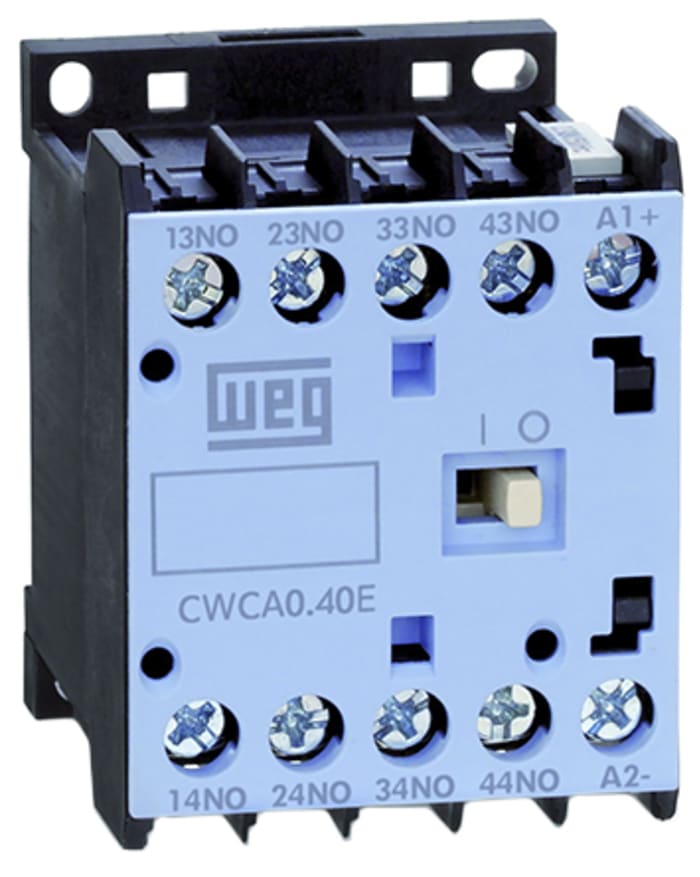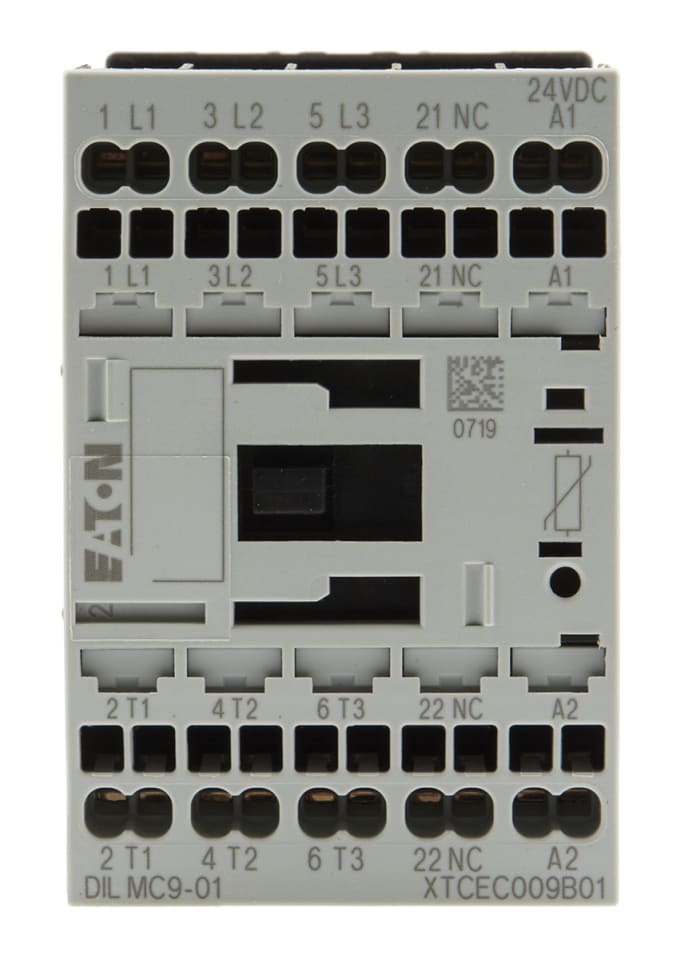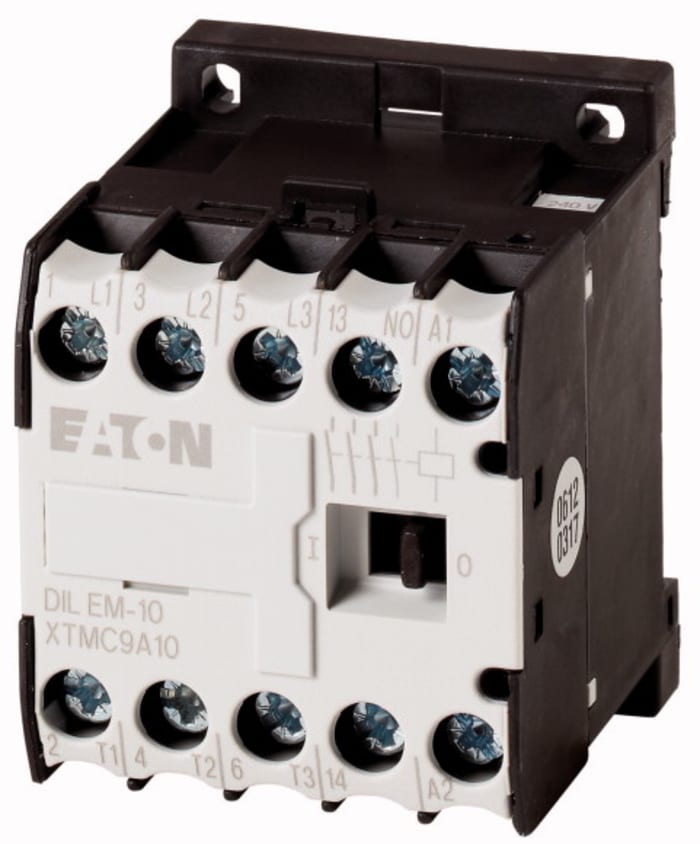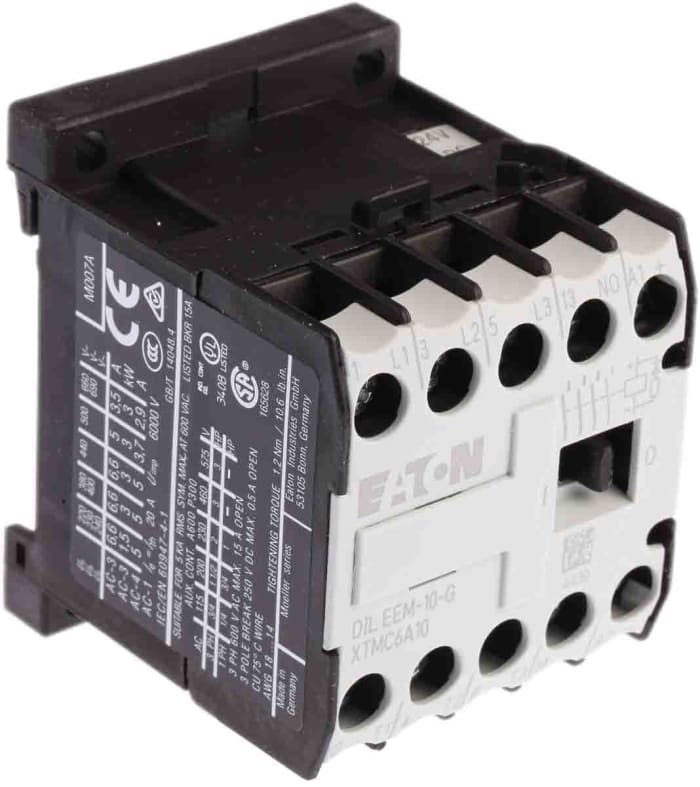Technical Document
Specifications
Brand
EatonCoil Voltage
24 V dc
Number of Poles
3
Contact Voltage Rating
400 V ac
Contact Current Rating
9 A
Range
xStart
Power Rating
4 kW
Function
Motor Control
Normal State Configuration
3NO
Auxiliary Contact Configuration
1NO
Number Of Auxiliary Contacts
1
Terminal Type
Screw
Length
58mm
Width
45mm
Depth
83mm
Load Voltage
690V ac
Pole and Throw Configuration
3P
Mounting Style
DIN Rail Mount
Maximum Operating Temperature
+40°C
Minimum Operating Temperature
-25°C
Input Current
50A
Country of Origin
Germany
Product details
Eaton Contactors - DILEM & DILEEM Series
Eaton's range of DILEM & DILEEM contactors are predominantly used in larger-scale operations, they are designed to provide a long mechanical and electrical life which in turn accomplishes reliability. Users will commonly find these contactors integrated within industrial buildings and factory installations, enabling automated processes of motors and resistive loads
Features & Benefits
Easier engineering through identical construction sizes for AC- and DC-operated contactors
Energy savings and higher packing density in control panel due to minimized heat dissipation
High wiring security through doubled box terminals
Less coupler relays: direct actuation from the PLC for contactors up to 32 A
Easy engineering through integrated suppressor circuits for DC
Wide operating temperature
Surface or DIN rail mounting
Ingress Protection Rating of IP20 on the contacts protecting against solid objects up to 12mm, - has no protection against water
Mechanical Interlock for use with DILE* Series 326-740 (does not prevent fitting of auxiliary contact blocks)
How contactors operate?
If you have asked yourself this question, rest assured you are not the only person that has wondered how contactors work. If you've wondered how do contactors differ from a relay? The following answer will also explain that. A contactor is essentially a relay, it holds very similar functions, but it is typically used in larger-scale applications. In most cases, a contactor is a switch that can be controlled remotely, specifically designed to switch a large amount of electrical power through its contacts.
P.O.A.
1
P.O.A.
1
Stock information temporarily unavailable.
Please check again later.
Technical Document
Specifications
Brand
EatonCoil Voltage
24 V dc
Number of Poles
3
Contact Voltage Rating
400 V ac
Contact Current Rating
9 A
Range
xStart
Power Rating
4 kW
Function
Motor Control
Normal State Configuration
3NO
Auxiliary Contact Configuration
1NO
Number Of Auxiliary Contacts
1
Terminal Type
Screw
Length
58mm
Width
45mm
Depth
83mm
Load Voltage
690V ac
Pole and Throw Configuration
3P
Mounting Style
DIN Rail Mount
Maximum Operating Temperature
+40°C
Minimum Operating Temperature
-25°C
Input Current
50A
Country of Origin
Germany
Product details
Eaton Contactors - DILEM & DILEEM Series
Eaton's range of DILEM & DILEEM contactors are predominantly used in larger-scale operations, they are designed to provide a long mechanical and electrical life which in turn accomplishes reliability. Users will commonly find these contactors integrated within industrial buildings and factory installations, enabling automated processes of motors and resistive loads
Features & Benefits
Easier engineering through identical construction sizes for AC- and DC-operated contactors
Energy savings and higher packing density in control panel due to minimized heat dissipation
High wiring security through doubled box terminals
Less coupler relays: direct actuation from the PLC for contactors up to 32 A
Easy engineering through integrated suppressor circuits for DC
Wide operating temperature
Surface or DIN rail mounting
Ingress Protection Rating of IP20 on the contacts protecting against solid objects up to 12mm, - has no protection against water
Mechanical Interlock for use with DILE* Series 326-740 (does not prevent fitting of auxiliary contact blocks)
How contactors operate?
If you have asked yourself this question, rest assured you are not the only person that has wondered how contactors work. If you've wondered how do contactors differ from a relay? The following answer will also explain that. A contactor is essentially a relay, it holds very similar functions, but it is typically used in larger-scale applications. In most cases, a contactor is a switch that can be controlled remotely, specifically designed to switch a large amount of electrical power through its contacts.




